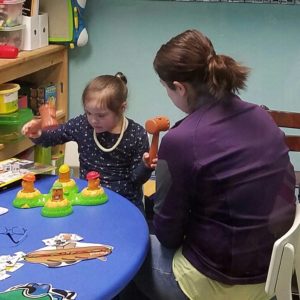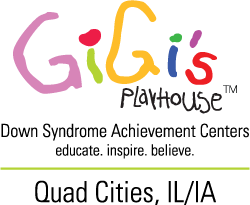Better Speech and Hearing Month
April 30, 2017
May is Better Speech and Hearing Month and we want to celebrate this with our blog this month! Our first post will focus on what a quality speech session should look like from, Ruth Haberkorn Halm is a speech-language pathologist at the Kaufman Children’s Center for Speech, Language, Sensory-Motor & Social Connections, Inc. She has great ideas for parents to look for in speech and language therapy sessions.
- Establish a positive relationship between your child and the therapist. The treatment room should be child-centered and a place where positive things happen. The therapist is the bearer of fun. Your child should be excited about their session. This keeps everyone more motivated to improve communication skills!
- Set Attainable Goals. Treatment goals should be appropriate to your child’s level of functioning. If we set goals that are not being met by the child, there are many thoughts that could go through a parent’s mind, including: “Why is my child not meeting his/her goals? What is the SLP doing? Is my child ever going to improve? We will forever be working on these same goals?”. Therapists try not to make it too hard for the child but want to push him/her to do a little more without frustrating the child, which can be difficult at times. Make sure that if you have concerns with the goals that are being created for your child that you ask questions. You are an important team member and the expert on your child.
- Parents should give input on motivators that work specifically for your child. Motivators are extremely important for attention and focus, cooperation, play and reinforcement. We all can get off task and we need to focus on finding what motivates us that day. Be sure to share what those are for your child, again you are the expert.
- Sessions should have a good balance of skills your child has mastered as well as new and challenging skills. With this balance, you will see interest to complete activities in your child, as he or she will feel successful. This also helps your child maintain previously learned skills, keeping these at the forefront of your child’s mind and then adding new and fun challenging skills
- Please, please, please always communicate with your therapist. Therapist’s should be good listener’s and can help give you suggestions on how you can help your child throughout the day and in multiple settings. Never worry that you are asking too many questions, they will always offer help if you ask and sometimes when you do ask!
Other great suggestions for quality speech sessions can be found here. 
Happy Better Speech and Hearing Month!
Blog submitted by Jenn Parsons, GiGi’s QC Program Manager and Speech and Language Pathologist
Recent Posts

2025 Highlights & 3.21 Club
2025 is coming to a close soon, and here at GiGi’s Playhouse Quad Cities, we have so much to be thankful for this year. We...


